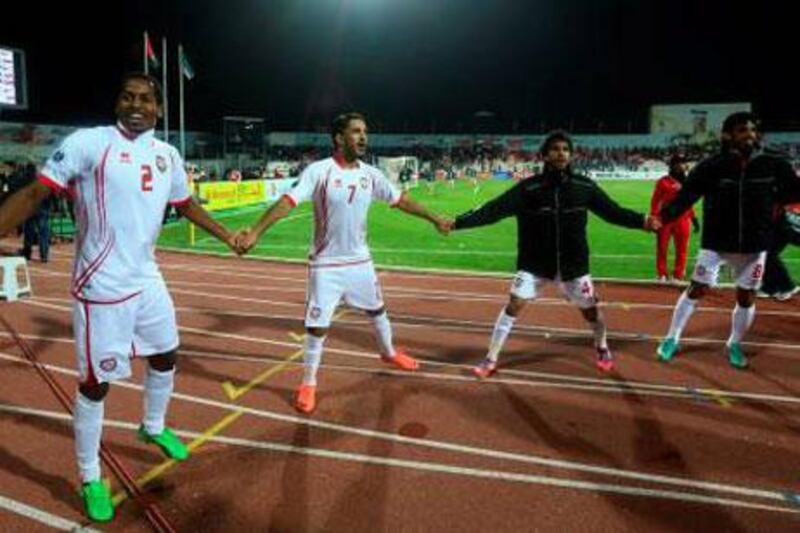At the Gulf Cup in Bahrain, Mahdi Ali's young Emiratis have been very effective in front of the goal. Ali Mabkhout is in fine form and Ahmed Khalil is on pace to win the Golden Boot. Those two have been supported in midfield by the creative play of Omar Abdulrahman and the improving Amer Abdulrahman; the duo have forged a great partnership and understanding, on and off the ball.
However, despite four consecutive victories, an Achilles heel has become apparent in the UAE side, and the Emirati footballers are very fortunate not to have lost earlier in this tournament. Especially against Bahrain, who were tactically sharper, held the ball well and played to the visitors' weaknesses: the fragility in central defence of Hamdan Al Kamali and Mohammed Ahmed.
Abdulraheem Jumaa and Basheer Saeed, defenders who played in the 2007 Gulf Cup championship UAE side, believe there is a lack of "harmony" between the pair which could lead to an unhappy end to this tournament for giddy UAE supporters.
Throughout their Group A matches the centre of the UAE defence was poor.
The midfield line tended to push too far forward, leaving huge spaces for opponents to exploit with diagonal long balls.
It is hard to identify what defensive strategy Mahdi Ali, the coach, has set for his defenders, whether it is man-to-man or zonal marking, because neither has been accomplished thus far, even after four victories. The defensive line has been all over the place, tactically and positionally.
Bahrain exploited the UAE's defensive lapses and they might have pulled off a victory were it not for their misfiring strikers wasting excellent chances in front of goal, chances created in the acres of space between the central defenders and midfield.
One former UAE defender suggests that an unclear strategy may have contributed to the lapses by Al Kamali and Ahmed.
"The game can change any second against the game plan or the defensive strategy which the manager plans for the game, and so was the case with the defenders in the group games," he said.
Mahdi Ali became aware of the developing problems, and he benched Al Kamali for the semi-final on Tuesday and partnered Mohaned Salem with Ahmed. Salem did not disappoint, clearing his lines and maintaining the discipline which had been lacking at the back.
Mahdi Ali's philosophy is to keep possession and play short passes in an attack which flows around the little kid with the big hair, Omar Abdulrahman, a player who instinctively wants to move the ball forward quickly, looking for a killer through-pass to the forwards. But that aggressiveness stretches the UAE in the back.
Defending is the cornerstone of every team and should be the main focus of Mahdi Ali's team for the final, from front to back.
It is too late now, but the Emirati side could have benefited from a defensive midfield presence such as Al Ain's Hilal Saeed, an authoritative figure in front of the defensive line who would have been quite useful in the final, given the suspension, for three cautions, of Khamis Esmail. But the 30-year-old Saeed, it should be noted, is the sort of veteran Mahdi Ali is avoiding, given his emphasis on the future.
The UAE's manager realises, before anyone else, if something is wrong in the player's performances or his tactics and is not afraid to drop big names like Ismail Matar or Hamdan Al Kamali. We hope the Emiratis lift their second Gulf Cup trophy tomorrow night, and they likely will if they can curb their defensive indiscipline.
Omar Al Raisi is a frequent contributor to The National.
Follow us
[ @SprtNationalUAE ]





